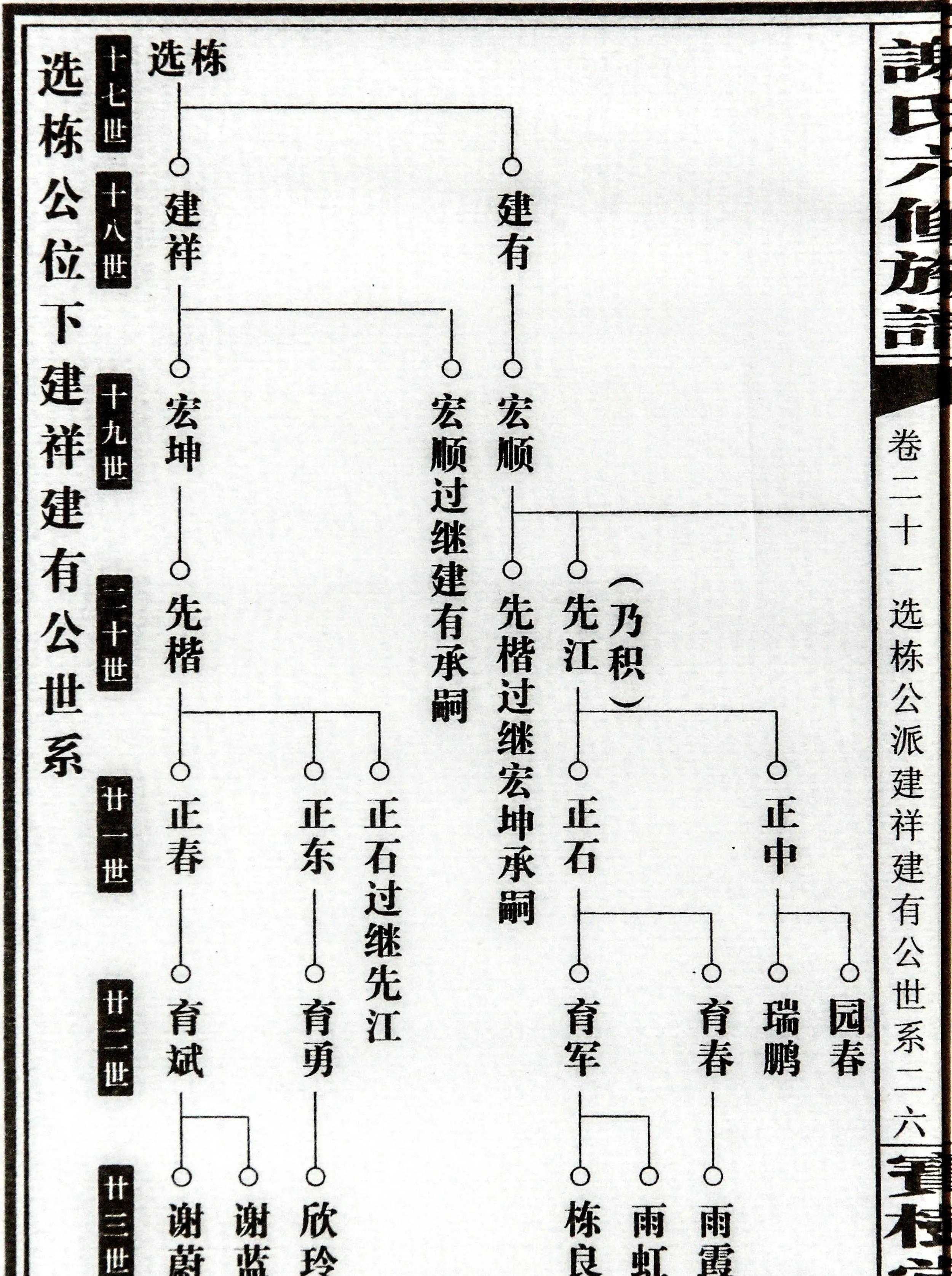Chinese surname culture has a strong blood cohesion, which can be said to be one of the great processes that promote the development of Chinese civilization, and the surname is also a maintainer of national blood relations. With the transition of Chinese civilization from a matrilineal clan society to a patrilineal clan, there has been a clan lineage relationship of "son inheriting incense" to inherit the bloodline.
Inheriting the heir, in ancient times, means that two or more boys for themselves to inherit a family without boys as a son, change their surname, inherit their "incense", and extend their bloodline. This traditional surname is common, and clan relations are also possible, and it can also be included in the family tree and enter the ancestral hall. It is precisely because of this special lineage that many ancient surnames have been able to continue.

The genealogy of the Six Xiu of the Xie clan records the relationship between succession and succession
In modern times, the relationship between men and women is legally equal, the "blood" relationship in the traditional surname culture is gradually blurred, and the reform and development of the policy of less birth and eugenics, the family is full of applause treasure, who wants their children to follow his surname? In reality, "heirs" are also not legally recognized, not "children" who can inherit inheritance according to law, and do not enjoy the right of inheritance (except for those who fulfill their main maintenance obligations).
So, please have a few more births, the task of continuing the incense is up to you.